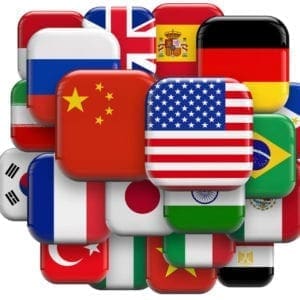 The world’s biggest spenders dish out $3,252 on average, per person, during trips. In total, these spenders spent a record $165 billion abroad last year (a 28% increase from the previous year). The number is growing annually.
The world’s biggest spenders dish out $3,252 on average, per person, during trips. In total, these spenders spent a record $165 billion abroad last year (a 28% increase from the previous year). The number is growing annually.
Who are these big spenders? They’re Chinese tourists who should be the number one demographic to keep your eye on this year.
Why the Chinese traveler matters: money
The reason Chinese travelers are so influential is because they’re embarking on more international trips than ever before, with more disposable income than ever before, and spending more than foreign tourists – yes, than ever before.
Travelers from China spent $11.36 billion more overseas than foreign tourists last year. As disposable income in this demographic rises, so does the desire for travel, especially since China eased travel restrictions beginning in 2002. Last year, over 109 million Chinese travelers visited destinations abroad, topping the 100 million mark for the first time. This number is expected to grow even further, as Ctrip.com, China’s largest OTA, predicts an increase of 15 to 20 percent of outbound tourism this year.
Why the Chinese traveler matters: needs
The amount the Chinese traveler is spending is really just one aspect of many you need to understand about these travelers. If hoteliers want a piece of this enticing pie, they need to understand that Chinese travelers’ needs differ from other travelers (although there are some similarities to other travelers as well). Capitalize on them and you’re looking at gaining the market share of a demographic who wants to explore the world.
1. The importance of authenticity
Chinese travelers are looking for authentic, local experiences – more so than other travelers. When they’re traveling from China, they’re visiting top destinations such as New York City in the U.S. and Paris and Rome in Europe. Moreover, they want authentic local experiences that other Chinese travelers won’t have – which brings us to point number two.
2. Prestige matters
Chinese travelers want experiences that differ from what others are having – if you can showcase how your hotel is giving them an exclusive, sneak peak of a certain local cuisine or culture, you’re appropriately reeling them in. They care about prestige, such as being able to share experiences on social media and bring gifts home. They also have high service standards that American hotels must meet to cater to their needs.
3. Mobile adopters
More than 80% of China’s 618 million Internet users access the Internet via a mobile device and like other travelers, if they’re not presented with an optimized experience to find accommodations on mobile, almost half will go to a competitor’s site.
While booking via mobile was slow to be adopted, it’s now growing. Almost 55% of Chinese international travelers book hotel accommodations online or via mobile apps, particularly the case for independent Chinese travelers under 25. Last year, the value of China’s online travel transactions reached over 270 billion Chinese yuan (about $4.4 billion U.S.), a 27% increase from the year before.
Latest reports show that the country has more than 1 billion mobile users in the country. Plus, leading Chinese OTA Ctrip.com’s mobile app has been downloaded over 187 million times, while Qunar.com, the world’s largest Chinese-language travel platform and mainland search engine, reported over 178 million downloads of its mobile app.
4. Generation gaps
Young travelers vs. older travelers search and book accommodations differently and this is certainly true in the Chinese outbound travel market. Young Chinese travelers represented 65% of all outbound travelers in 2012, an increase of almost 50% from 2007, according to The State of Chinese Outbound Market Travel 2014 report by Skift. These travelers are looking to experience new cultures outside their country and practice their language skills. Plus, they’re more likely to be online-savvy and use social media for travel inspiration and advice.
The older generation, on the other hand, is much less experienced with traveling abroad because of travel restrictions which only relaxed recently. For the older travelers, they’re more likely to be purchasing package tours and buying accommodations through travel agents. They want to see as many iconic attractions as possible, so they do not spend as much time in one location. Plus, they’re more budget-conscious and looking for a deal.
Market reactions
As Chinese outbound travel is poised to grow at an unprecedented pace, the hospitality industry has slowly followed suit. Hilton Worldwide recently announced the expansion of its Hilton Huanying program that offers Chinese travelers a customized hospitality experience during their stay at Hilton properties around the world, which appeal to the needs of the Chinese traveler. Look at other hotels to follow the same example in 2015.
This is one demographic that you should keep your eyes on this year if you want to reach the world’s biggest spender who are looking for an authentic experience – could it be your hotel’s?















